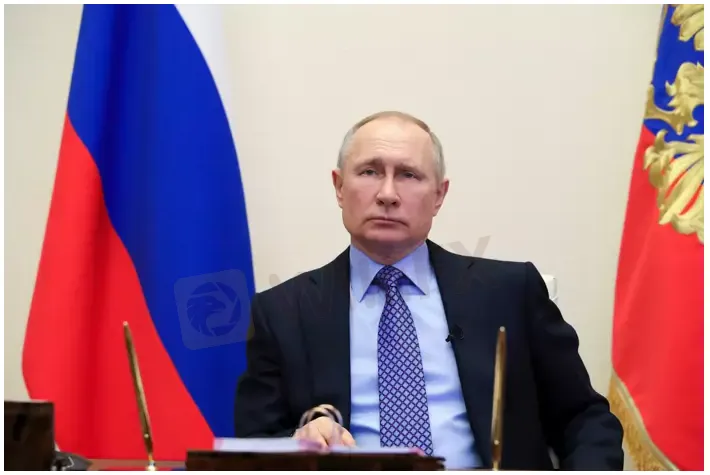简体中文
繁體中文
English
Pусский
日本語
ภาษาไทย
Tiếng Việt
Bahasa Indonesia
Español
हिन्दी
Filippiiniläinen
Français
Deutsch
Português
Türkçe
한국어
العربية
Russia to Ease Crypto Asset Taxes as Sanctions Bite Deeper
Abstract:The Russian government is adjusting its digital asset tax rates in an effort to encourage more adoption as avenues of traditional finance are being increasingly blocked off.

A proposed draft law will drop VAT for local crypto companies by 35%.
Russia is trying to encourage more crypto adoption in the face of financial sanctions.
Crypto markets have shed 46% since the war in Ukraine began.
Russia is increasingly turning to digital assets as Western-imposed sanctions, and financial restrictions continue to erode its ability to transact with other nations.
On June 28, Russian lawmakers approved draft legislation that would potentially exempt issuers of crypto assets from value-added tax (VAT). Currently, the tax rate for companies conducting digital asset transactions is 20%.
Under the new rate, this will be dropped to 13% for Russian exchanges on the first 5 million rubles (around $US94,000) annually. Foreign exchanges and crypto asset companies will be subject to 15% VAT, according to local media.
Russia Opening to Crypto
The Russian central bank, like most others around the world, has taken a harsh stance against cryptocurrencies. In February, financial regulators issued the first digital assets license for local platform Atomyze Russia, and one for leading lender Sberbank followed.
In addition to the tax cuts for issuers, the draft law approved by State Duma members also establishes tax rates on income earned from the sale of crypto assets. However, the legislation must still be reviewed by the upper house and signed by President Vladimir Putin to become law.
The law, if passed, will establish specifics regarding digital asset operations and what the government calls utilitarian digital rights (UTR), which it considers similar to securities.
The move comes as financial restrictions continue to hamper the country‘s ability to transact globally in the wake of Vladimir Putin’s invasion of Ukraine. Most major Russian banks have been blocked from the international payments channel, SWIFT.
Anti-crypto U.S. politicians used the premise that Russia would pivot to crypto to evade sanctions in an effort to further crack down on them, but it simply hasnt happened yet.
Russias financial woes are worsening as this week, it defaulted on its foreign debt for the first time since the Bolshevik revolution, also known as the October Revolution in 1917. Russia failed to pay interest on two bonds during a 30-day grace period that expired on June 26.

Disclaimer:
The views in this article only represent the author's personal views, and do not constitute investment advice on this platform. This platform does not guarantee the accuracy, completeness and timeliness of the information in the article, and will not be liable for any loss caused by the use of or reliance on the information in the article.
Read more

Space World Capital - The Forex Broker You Should Not Partner with
Explore this guide to know the scam of Space World Capital, which does not hold a regulatory license to operate forex business.

Crypto Craze Fizzling Out? Here is Why
The Crypto Craze among users is fading out. The wave of Cryptocurrency has slowed down. But what are the major reasons why this has happened?

Social Trading Goes Mobile at M4Markets
A new mobile application for social trading has been launched through a collaboration between brokerage firm M4Markets and fintech provider Brokeree Solutions

ACY Securities Expands Crypto CFD Offering with 24/7 Trading Access
ACY Securities, a global broker specialising in CFD trading across multiple asset classes, has expanded its cryptocurrency offering by introducing 10 new digital currency CFDs and enabling 24/7 trading access across all its supported platforms
WikiFX Broker
Latest News
The Dollar Keeps Falling: How Should We View Exchange Rate Volatility?
Asia-Pacific markets rise as investors parse a slew of data releases
Asia-Pacific markets mostly rise as investors parse a slew of data releases
WikiFX Gala Night Malaysia Concludes Successfully
IG Group Unlocks Over £425 Million amid a Capital Reduction
Gold Prices Fall by INR 39,300 in the Last Week? What's Next Week's Outlook?
European stocks open slightly higher as UK-U.S. trade deal cuts autos, aviation tariffs
Treasury yields tick lower as Trump's spending bill in focus
European stocks mixed as UK-U.S. trade deal cuts autos, aviation tariffs
Ripple and SEC Drop Appeals, Bringing 5-Year Legal Saga to a Close
Currency Calculator


